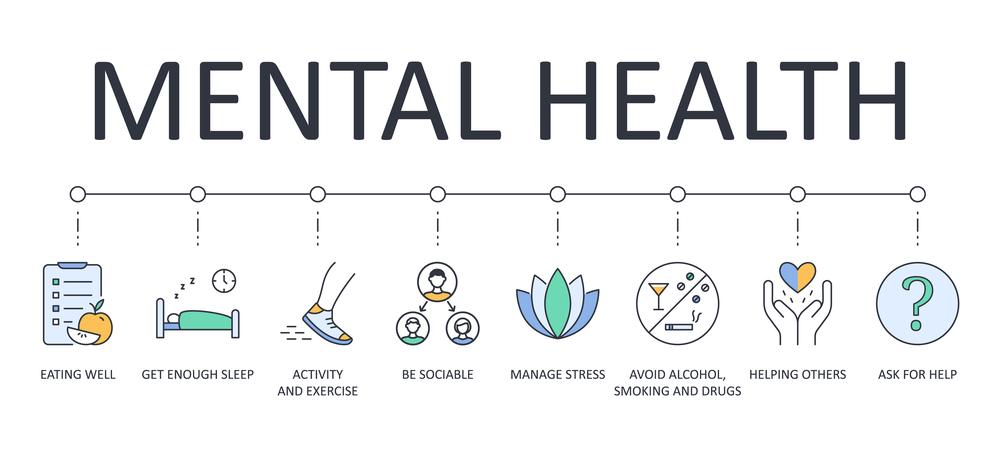As a BetterHelp affiliate, we receive compensation from BetterHelp if you purchase products or services through the links provided
Understandably, people looking for a job are as concerned about the quality of life they will experience as they are about the compensation they will receive. With Gen Z increasingly prioritizing quality of life issues and work-life balance and even ghosting interviews for companies that don’t meet their needs, the question of how stressful a job will be is often at the top of their minds. If you are interested in programming, you probably want to know how stressful programming can be.
In this article, we’ll look at how stressful programming can be as a career by looking at two aspects of stress: the physical and the mental. Then, we’ll draw a few conclusions about how stressful you might find programming if you choose it as your career.
Physical, Emotional, and Mental Stress
 There are three different ways to think about stress: the physical, the emotional, and the mental. Physical stress refers to the strain that the job puts on your body. For example, professional athletes experience a great deal of physical stress on their bodies because the job entails using one’s body at a high level, placing strain on muscles and joints. By contrast, psychologists experience a great deal of emotional stress in their jobs because they deal with other people’s problems at great length and are subject to emotional strain from repeated exposure to others’ trauma and crises. On the other hand, jobs that require constant learning or rapid responses to changing circumstances may create a great deal of mental stress as workers struggle to keep up with the pace of work.
There are three different ways to think about stress: the physical, the emotional, and the mental. Physical stress refers to the strain that the job puts on your body. For example, professional athletes experience a great deal of physical stress on their bodies because the job entails using one’s body at a high level, placing strain on muscles and joints. By contrast, psychologists experience a great deal of emotional stress in their jobs because they deal with other people’s problems at great length and are subject to emotional strain from repeated exposure to others’ trauma and crises. On the other hand, jobs that require constant learning or rapid responses to changing circumstances may create a great deal of mental stress as workers struggle to keep up with the pace of work.
If you are already on the path to becoming a programmer, you may have some inkling of what it will be like to do this as a job, thanks to your schoolwork. Indeed, that schoolwork is often quite stressful. If you have difficulty with your coding assignments and need help with programming homework, you can turn to the experts at AssignmentCore. Our team of programming experts can help undergraduate or graduate students with any programming.
So, what kinds of stress can you expect to experience as a programmer?
Physical Stress
Programming can be physically stressful because of the physical motions involved. Many programmers experience physical problems with their eyes, back, wrists, and shoulders. Programming involves sitting for long periods, and sitting is associated with several adverse effects, particularly when someone does not exercise regularly or has access to frequent breaks. Backs and shoulders can become sore from sitting for long periods, especially if the programmer hunches over while working at a computer terminal. Wrist issues emerge from repetitive motion. Typing can create carpal tunnel problems. While computer mice are gradually giving way to other forms of interacting with computers, that kind of repetitive motion is still common.
The most frequent physical complaint from programmers is eye strain. Staring at a screen all day, compounded by recreational screen time in off-hours, can harm eye health, cause eye strain, and even lead to insomnia and other sleep issues from too much light entering the eye at night. Programmers who work in darkened rooms are especially susceptible due to the lack of natural light and other objects to look at to give their eyes a rest.
To combat physical stresses, programmers can practice ergonomics and utilize blue light filters and settings to help make the process less physically demanding.
Emotional Stress
While programming doesn’t involve a lot of emotional labor, it can be emotionally stressful. Programmers often work in teams, and either participating in a team or managing one doesn’t always come quickly to programmers, many of whom prefer to go it alone. Many programmers find it emotionally stressful to compromise their vision or best practices for the good of the product. An even bigger problem stems from Silicon Valley’s high-performance, micromanaging culture, which prioritizes an aggressive style of management that can leave employees feeling emotionally exhausted. Elon Musk, for example, famously demands his employees be “hardcore,” sometimes requiring them to sleep on their office floor, work extreme hours, and forgo social and family obligations to reach company goals.
Mental Stress
Even if you find a company and a management team with reasonable expectations, several mental stresses can still affect programmers. The most important is the stress of constantly updating one’s knowledge and skill set to stay current. Programming languages go in and out of vogue, and the latest tech innovations and updates can upend the industry in weeks or months. Adapting to rapidly changing conditions can create enormous stress, especially for programmers who have had difficulty learning previous trends. When you combine this with the economic stress of your employment being dependent on correctly anticipating the next big trend, it can become mentally taxing to navigate programming as a career.
Summing Up
Programming can be a gratifying career, but it has its own stresses and challenges. It is up to you to evaluate how prepared you are for these stressors and how much stress you feel you can successfully handle. The compensation for programming often can make up for much of the stress you will experience!
This site contains affiliate links to products. We will receive a commission for purchases made through these links.



